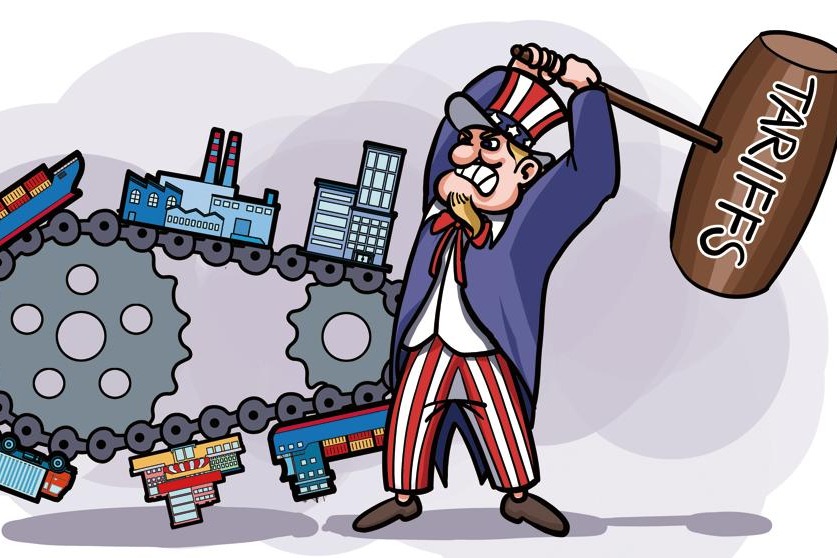Economic globalization remains long-term trend


Editor's Note: Foreign trade and investment play a vital role in stabilizing growth and employment, as well as building a new development paradigm. In an interview with Economic Daily, Zhao Zhongxiu, president of the University of International Business and Economics, explained the current state of China's foreign trade and investment and what needs to be done to develop it further. Below are excerpts from the interview. The views don't necessarily represent those of China Daily.
China's foreign trade grew by 2.9 percent year-on-year to 21.79 trillion yuan ($3.04 trillion) in the first half of 2025. To ensure the stable development of foreign trade, the government can focus on the following measures.
First, it is very important to reduce the reliance on a single market. China needs to deepen cooperation with the Association of Southeast Asian Nations, Africa, Latin America and countries involved in the Belt and Road Initiative to tap into these emerging markets for growth.
Also, efforts should be made to build an efficient policy coordination system and promote digital services through the "single window" platform to make customs clearance more efficient, implement export tax rebates and provide targeted assistance to affected enterprises.
Meanwhile, banks should implement a financing coordination mechanism that covers all foreign trade enterprises, with a focus on supporting risk management for small and micro-sized businesses. Tailored services should be provided to support innovative entities, and cross-border financial services should be strengthened for emerging sectors such as cross-border e-commerce.
To this end, enterprises should be encouraged to participate in trade fairs to expand market channels and the functions of overseas economic and trade cooperation zones should be enhanced.
The establishment of a unified national market promises to reduce domestic costs through increased fiscal investment, credit support and lower fees. Retail e-commerce and supply chain companies should be encouraged to open green channels to align with domestic market demand.
The export of high-tech products needs to be promoted. Leveraging the strengths of the manufacturing sector will help stabilize industry and supply chains. China should align with high-standard international economic and trade rules, foster the development of digital services and unlock new potential in foreign trade.
Cross-border e-commerce plays a vital role in ensuring the stability, security and autonomy of industry and supply chains. A more robust policy support system needs to be developed, including setting up smart logistics platforms overseas and streamlining customs clearance, taxation and financial services related to cross-border e-commerce. Additionally, centers for enabling industrial digital transformation and regional trade platforms should be established to actively foster new forms of trade.
Of late, some developed countries have started promoting reshoring, nearshoring or friendshoring, measures that are driven by political disruptions. As a result, enterprises have to factor these noneconomic variables into their cost calculations and some segments of global supply chains are readjusting to align with the changes. Although enterprises in China and the United States are ready to cooperate and pursue common goals despite the challenges, the deglobalization sentiment needs to be acknowledged.
However, a complete "decoupling" between major powers is neither realistic nor sustainable. While some countries may advocate so-called de-risking strategies to reduce imports from China, the basic objective of all businesses remains unchanged: maximize profits through global production and sales networks.
This very logic is the foundation of the global value chain system. From this perspective, economic globalization is the long-term trend, while deglobalization is a short-term phenomenon. The right direction is cooperation and working toward mutual benefit.

































